 W
WCharles Ashton was a Welsh literary historian and bibliophile, born in Llawr-y-glyn, Montgomeryshire (Powys).
 W
WTony Bianchi was a prize-winning novelist, poet, short-story writer and critic, writing in both Welsh and English.
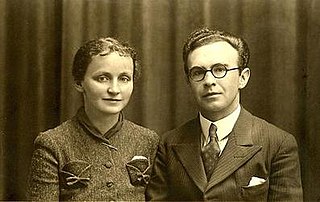 W
WKäthe Bosse-Griffiths was a German-born Egyptologist, who after moving to Wales, became a writer in the Welsh language.
 W
WCatrin Dafydd is a Welsh author, scriptwriter, poet and was awarded the Crown at the 2018 National Eisteddfod of Wales.
 W
WDr John Davies, Mallwyd was one of Wales's leading scholars of the late Renaissance. He wrote a Welsh grammar and dictionary. He was also a translator and editor and an ordained minister of the Church of England.
 W
WRev Dr Gwilym Arthur Edwards MA, DD was a Welsh Presbyterian minister and writer on theological topics. He was Principal of the United Theological College Aberystwyth from 1939 to 1949.
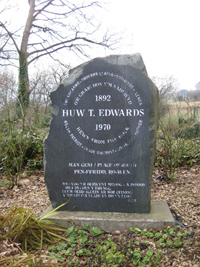 W
WHuw Thomas Edwards was a Welsh trade union leader and politician.
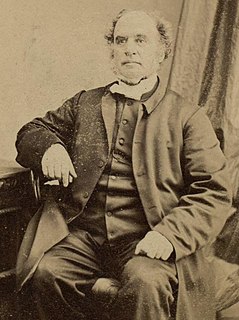 W
WRoger Edwards D.D. was a Welsh Calvinistic Methodist, who later became prominent in Wales as a press editor and publisher.
 W
WRobert Ellis, professionally known by his bardic name Cynddelw, was a Welsh language poet, editor, and lexicographer, born at Tyn y Meini, Bryndreiniog, Pen-y-Bont-Fawr in the old county of Montgomeryshire, Mid Wales.
 W
WGwynfor Richard Evans was a Welsh politician, lawyer and author. He was President of the Welsh political party Plaid Cymru for thirty-six years and was the first Member of Parliament to represent it at Westminster, which he did twice, from 1966 to 1970, and again from 1974 to 1979.
 W
WPeter Anthony Freeman is a Welsh author, politician and storyteller.
 W
WAnn Griffiths was a Welsh poet and writer of Methodist Christian hymns in the Welsh language. Her poetry reflects fervent evangelical Christian faith and thorough scriptural knowledge.
 W
WJohn Gwyn Griffiths was a Welsh poet, Egyptologist and nationalist political activist who spent the largest span of his career lecturing at Swansea University.
 W
WWilliam John Gruffydd was a Welsh scholar, poet, writer and editor, and the last Member of Parliament to represent the University of Wales seat.
 W
WBethan Gwanas is a popular contemporary Welsh author, who publishes almost exclusively in the Welsh language. A prolific writer, she has had 17 titles published in the last decade. Whilst not just a fiction writer, she has written novels for teenagers and Welsh learners, though most of her recent work has been for adults.
 W
WJoseph Harris was a Welsh Baptist minister, author, and journal editor. A Welsh language poet, he took the Biblical name of Gomer as his bardic name. On 1 January 1814 he launched the first Welsh-language weekly Seren Gomer in Swansea. Gomer was born on a farm in Wolf's Castle, Pembrokeshire, where a plaque was unveiled in his memory, making the 200th anniversary of the launch of Seren Gomer. Gomer himself became a preacher during the religious revival of 1795. He married Martha Symons, and took on Back Street chapel. One of his best-known works, Cofiant Ieuan Ddu, was a biography of his son, John Ryland Harris, who worked as a typesetter for his father's printing press and died at the age of twenty.
 W
WWilliam Henry Harris was a British Welsh-speaking priest, academic and translator. Ordained in 1914, he served for most of his life (1919-1941) as a teacher of theology at St David's College, Lampeter, becoming a professor of theology at the college in 1940 and Professor of Welsh in 1941. At the same time, he served at St David's Cathedral as precentor (1933), canon (1937) and treasurer (1948). He translated several hymns and liturgical texts into Welsh. As a theologian, he valued the Catholic inheritance in the reformed churches and fostered this inheritance within the Church in Wales. He also served as professor of Welsh at St David's College, Lampeter.
 W
WEdward Morgan Humphreys (1882–1955) was a Welsh novelist, translator, and journalist, often known as E. Morgan Humphreys. He also sometimes wrote under the pseudonym Celt
 W
WEmrys ap Iwan was born Robert Ambrose Jones in Abergele, Conwy. He was a literary critic and writer on politics and religion. He is often seen as one of the most important forerunners of modern Welsh nationalism.
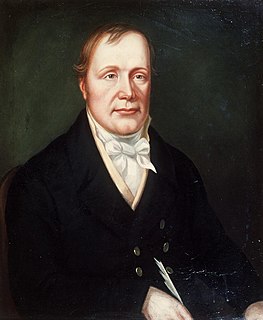 W
WJohn Jones, better known by his bardic name Jac Glan-y-gors, was a Welsh language satirical poet and radical pamphleteer, born in Cerrigydrudion, Denbighshire, north Wales.
 W
WDan Jones was an influential Welsh missionary of The Church of Jesus Christ of Latter-day Saints. Jones is well known for having heard the "final prophecy" of Joseph Smith, namely, that Jones would fulfil a mission to Wales before he died.
 W
WProfessor Thomas Gwynn Jones C.B.E., more widely known as T. Gwynn Jones, was a leading Welsh poet, scholar, literary critic, novelist, translator, and journalist who did important work in Welsh literature, Welsh education, and the study of Welsh folk tales in the first half of the twentieth century. He was also an accomplished translator into Welsh of works from English, German, Greek, and Irish.
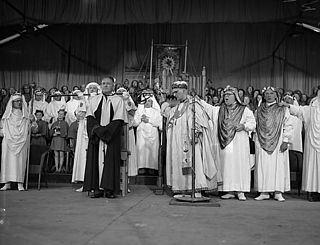 W
WThomas Llewelyn Jones was a Welsh language author. Over a writing career of more than 50 years, he became one of the most prolific and popular authors of children's books in Welsh. He wrote, and was generally known, as T. Llew Jones.
 W
WSaunders Lewis was a Welsh political activist, poet, dramatist, historian and literary critic. He was a prominent Welsh nationalist and one of the founders of Plaid Genedlaethol Cymru, later known as Plaid Cymru. Lewis is usually acknowledged as one of the most prominent figures of 20th century Welsh-language literature. In 1970, Lewis was nominated for a Nobel Prize in Literature. Lewis was voted the tenth greatest Welsh hero in the '100 Welsh Heroes' poll, released on St. David's Day 2004.
 W
WEluned Morgan, was a Welsh-language author from Patagonia.
 W
WMorgan John "Moc" Morgan OBE was a Welsh fly fisherman, administrator, naturalist and television presenter. Born into a rural family, Morgan became a head teacher, but his love of fly-fishing led him into media opportunities in Welsh radio and television. One of the definitive writers of books relating to fly-fishing within Wales, Morgan became an important administrator in Welsh, British and European aspects of the sport.
 W
WJohn Jones, better known under his nom de plume Myrddin Fardd, was a Welsh writer and antiquarian scholar born at Tan-y-Ffordd in the village of Mynytho, Llangian, Caernarfonshire. He was a translator and a collector of folklore.
 W
WOwain Owain was a Welsh novelist, short-story writer and poet. He also founded Tafod y Ddraig, which became the Welsh Language Society's main voice from its birth in the 1960s to the present day.
 W
WDavid Owen was a Welsh poet and farmer. He is noted for developing two traditional Welsh verse forms: the awdl and the englyn.
 W
WWilliam Owen Pughe was a Welsh antiquarian and grammarian best known for his Welsh and English Dictionary, published in 1803, but also known for his grammar books and "Pughisms" (neologisms).
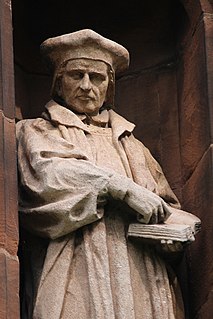 W
WRichard Parry (1560–1623) was a Bishop of St Asaph and translator of the Bible to the Welsh language.
 W
WWilliam John Parry was a Welsh businessman, politician and author. Parry was a leading voice in a range of activities and causes, and was the first general secretary of the North Wales Quarrymen's Union.
 W
WDr Thomas Ifor Rees C.M.G. was a British diplomat, author and translator. Born Thomas Ifor Rees at 'Bronceiro' near the hamlet of Rhydypennau in Cardiganshire, Wales, he served as Britain's first Ambassador to Bolivia from 1947 until his retirement in 1949.
 W
WThomas Richards was a Welsh curate from Coychurch in the eighteenth century, best known for his 1753 Thesaurus, a Welsh-English dictionary. The Welsh-English dictionary was used by Dr. Samuel Johnson in compiling A Dictionary of the English Language (1755).
 W
WDavid Richards, better-known by his bardic name Dafydd Ionawr, was a Welsh-language poet, born at Glanyrafon near Bryn-crug in the parish of Tywyn in Merionethshire, north-west Wales.
 W
WSamuel Roberts, or simply "S.R.", was a Welsh minister, known also as a political and economic writer. He was involved in an attempt to set up a Welsh colony in Tennessee, but this was disrupted by the American Civil War.
 W
WKate Roberts was one of the foremost Welsh-language authors of the 20th century. Styled Brenhines ein llên, she is known mainly for her short stories, but also wrote novels. Roberts was a prominent Welsh nationalist.
 W
WJason Shepherd is a Welsh podcast host, author, artist and audiobook narrator. Since 2008 he has produced and hosted the internationally recognized Learn Welsh Podcast, about Welsh language and culture, and has been involved in several book projects. Shepherd was an honorary guest of the Los Angeles St. David's Day Festival between 2011 and 2013, where he taught the Welsh language, and worked as Cultural Editor of Celtic Family Magazine from 2013 to 2015.
 W
WRonald Stuart Thomas, published as R. S. Thomas, was a Welsh poet and Anglican priest who was noted for his nationalism, spirituality and dislike of the anglicisation of Wales. John Betjeman, in his 1955 introduction to Song at the Year's Turning, the first collection of Thomas's poetry from a major publisher, predicted that Thomas would be remembered long after he himself was forgotten. M. Wynn Thomas said: "He was the Aleksandr Solzhenitsyn of Wales because he was such a troubler of the Welsh conscience. He was one of the major English language and European poets of the 20th century."
 W
WAngharad Tomos is a Welsh author and prominent language activist. She is a recipient of the Tir na n-Og Award.
 W
WTwm o'r Nant was the pen name of the Welsh language dramatist and poet Thomas Edwards, also known as Tom of the Dingle. He was famous for his anterliwtau, which he performed mainly around his native Denbighshire.
 W
WElizabeth Watkin-Jones was a Welsh children's book author, who wrote in the Welsh language.
 W
WSir Ifor Williams, was a Welsh scholar who laid the foundations for the academic study of Old Welsh, particularly early Welsh poetry.
 W
WWilliam Williams, Pantycelyn, also known as William Williams, Williams Pantycelyn, and Pantycelyn, is generally seen as Wales's premier hymnist. He is also rated as one of the great literary figures of Wales, as a writer of poetry and prose. In religion he was among the leaders of the 18th-century Welsh Methodist revival, along with the evangelists Howell Harris and Daniel Rowland.
 W
WEllis Wynne was a Welsh clergyman and author of one of the most important and influential pieces of Welsh-language literature.